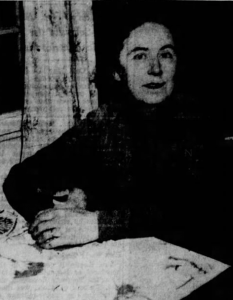
(1886-June 24, 1973). Mary Donovan Hapgood was born in North Brookfield, Massachusetts. She graduated from the University of Michigan in 1912, returned to North Brookfield where she taught school until 1914, and then became a factory inspector for the Massachusetts Department of Labor.
Hapgood became well known in the 1920s for her involvement in the defense of Nicola Sacco and Bartolomeo Vanzetti, two Italian immigrant anarchists erroneously convicted of murder in a nationally publicized trial and the unsuccessful campaign for their release. She became their corresponding secretary in 1924, and after their execution in 1927, she delivered their eulogy. In his book, , Pulitzer-Prize-winning author Upton Sinclair referred to her as the “Joan of Arc” of the defense. During her involvement in the case, she met her future husband, , who had also gone to Boston to campaign for release of the condemned men.
Mary Hapgood became active in the Socialist Party, and in 1928 she was nominated as its candidate for governor of Massachusetts. In 1940, after settling in Indiana with her husband Powers, she was the party’s candidate for governor of Indiana, making her the first woman to be nominated for the Hoosier state’s highest office. In 1932, she was proposed for, but did not accept, the party’s nomination as its candidate for vice president of the United States. Instead, she campaigned in 1932 for Powers, who ran as the party’s candidate for governor of Indiana.
Along with her husband, Mary Hapgood was involved in the founding of the Committee of Industrial Organizations, later the Congress of Industrial Organizations (CIO), in 1935. She was also involved in the American Civil Liberties Union and the labor movement and helped to found the after her husband’s death in 1949. She remained politically active, working in the 1960s peace movement, helping to form the Women’s International League for Peace and Freedom, and being involved in the presidential campaigns of Eugene McCarthy in 1968 and George McGovern in 1972.

Help improve this entry
Contribute information, offer corrections, suggest images.
You can also recommend new entries related to this topic.